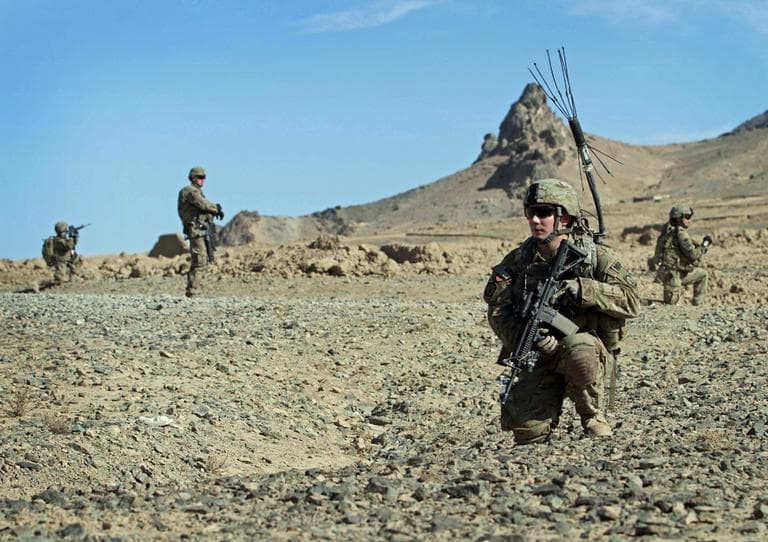Advertisement
Army Grapples With PTSD
ResumeThe Army grappling with PTSD after the murder charges against Robert Bales. We'll dig in.

We don’t know if Army Staff Sgt. Robert Bales was ever diagnosed with PTSD – post-traumatic stress disorder.
We do know he’s sitting in military prison, charged with seventeen counts of murder – including nine children. Killed in a terrible night of bloody rampage.
And we do know he was troubled and wounded and in his fourth tour in ten years of war. Since the March 11th massacre, the US Army has announced it is again reviewing all its mental health programs and its screening process for sending soldiers to war.
This hour, On Point: Battle stress, and the real cost of PTSD.
-Tom Ashbrook
Guests
Hal Bernton, a reporter with the Seattle Times, he's been covering the case of Robert Bales and the new revelations of the military's handling of PTSD cases.
Daniel Zwerdling, a correspondent in NPR's Investigations Unit. You can find his series of investigative stories — reported in collaboration with ProPublica-- about how the military deals with PTSD and traumatic brain injuries here.
Dr. Jonathan Shay, a retired psychiatrist, he worked with the department of Veterans Affairs Outpatient Clinic in Boston for more than 20 years. He is the author of Odysseus in America: Combat Trauma and the Trials of Homecoming, and Achilles in Vietnam: Combat Trauma and the Undoing of Character.
From Tom's Reading List
The New York Times "Over the years, high-ranking Army officials have spoken out about how those strains were affecting morale and the mental health of the troops. Official surveys and studies have researched the relationships between repeated deployments and a range of problems, like marital stress, suicide and post-traumatic stress disorder. Commanders have said that they are acutely aware of the problems that can follow combat, even as they have expressed pride in the resiliency of the rank and file."
The Associated Press "The Army is reviewing all its mental health programs and its screening process in light of the March 11 shooting spree in two slumbering Afghan villages that killed families, including nine children."
Seattle Times "A Madigan Army Medical Center screening team reversed more than 40 percent of the post-traumatic stress disorder diagnoses of patients under consideration for medical retirement since 2007, according to information released by U.S. Sen. Patty Murray."
The New York Times "Like many soldiers, he was more concerned with figuring out how to cope from one deployment to the next than with finding a direction. He is different now. The bombing, the P.T.S.D. and the challenges he faced changed him. And he thinks he has changed for the better."
This program aired on March 26, 2012.